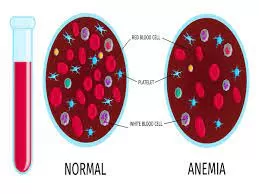
In a groundbreaking move, the government has unveiled comprehensive guidelines aimed at assisting hospitals in determining the necessity of admitting patients into Intensive Care Units (ICUs). Compiled by a panel of 24 esteemed doctors specialized in critical care medicine, these guidelines outline specific medical conditions warranting ICU admission, including altered consciousness levels and the need for respiratory support.
The recommendations emphasize ICU care for severe acute illnesses requiring intensive monitoring, post-surgery cases at risk of deterioration, and patients encountering major intraoperative complications. Notably, individuals with living wills opposing ICU care, those with advanced directives against it, or cases involving terminal illness with a prognosis of futility are excluded from the list of candidates necessitating ICU care.
Dr. R K Mani, a contributor to the guideline development, stressed the importance of judiciously utilizing ICU resources, stating, “Our recommendations aim to prioritize those most in need.”
Dr. Sumit Ray, Secretary of the Indian College of Critical Care Medicine, clarified that while these guidelines serve as guidance, they are not obligatory, leaving considerable discretion to treating physicians. He highlighted that developed nations typically employ triage protocols to optimize resource utilization.
India, with nearly 100,000 ICU beds mainly in urban private facilities, faces challenges in ensuring access to critical care for the underprivileged. Advocate and public health activist Ashok Agarwal voiced concerns about prioritizing ICU care based on conditions, advocating for equitable access to critical care facilities for all citizens.
The guidelines, available publicly through the Directorate General of Health Services (DGHS), aim to streamline ICU admissions, addressing past grievances of unnecessary admissions. They also provide directives for ICU discharge, suggesting release upon stabilization of acute illness or by mutual agreement for treatment-limiting decisions or palliative care.
Moreover, the guidelines stipulate the necessity of intensivists or critical care specialists, or alternatively, MBBS graduates with substantial ICU experience, ensuring proficient management of critically ill patients in ICU settings.
Download Here
Final Guidelines for ICU Admission and Discharge Criteria











